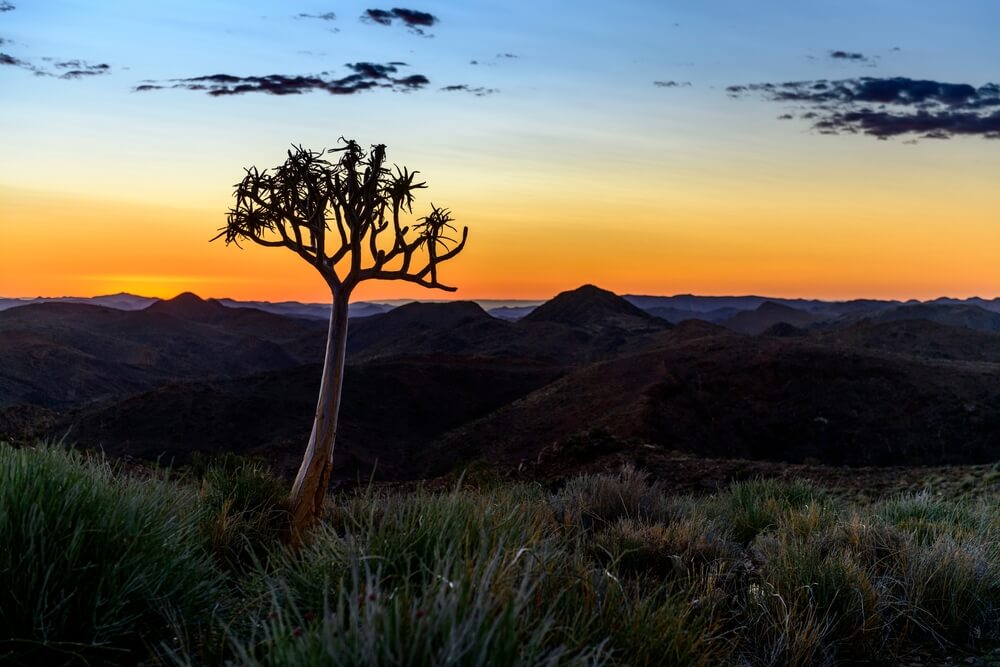[DYNAMIC-BLOGTABLEOFCONTENT]
What to Expect on your Hunting Safari in Botswana
Elephant hunting in Botswana should be on any hunter’s bucket list. But what about game hunting? Check. And the Africa plains game? Check two. This landlocked African country offers a variety of game hunting opportunities and more for you to enjoy.
If you choose to bring your family, be assured there will be activities for all, and with it being considered one of the safest countries in Africa, you can focus on your trophy hunting in Botswana while knowing your family and friends back in the resort are safe and making enough memories to last a lifetime!
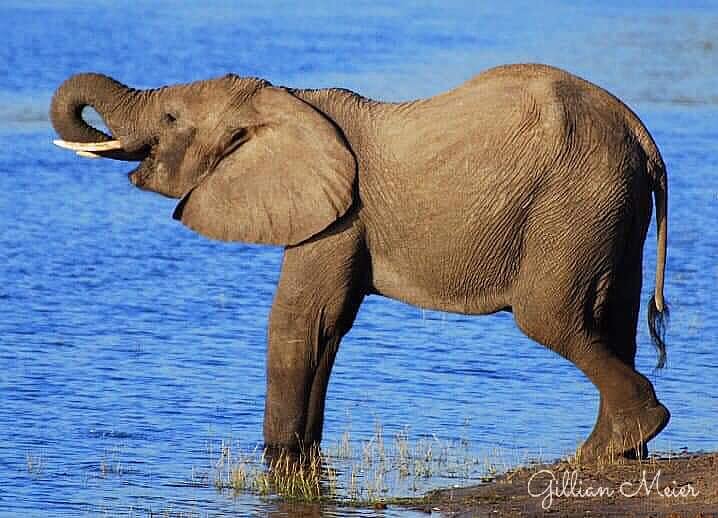
Geography and Landscape
Botswana is landlocked and borders with Zimbabwe, Namibia, South Africa, and Zambia.
Around 80% of this country is typified by the Kalahari Desert, while in contrast, its northwestern land is Okavango Delta. And in the north lies the Makgadikgadi Pan, one of the world’s largest salt pans. The Chobe River lies as a border between Botswana and Namibia’s Zambezi Region.
Botswana’s land is generally flat, savannah-type land, with more shrubs, grasses, and trees in the wetter regions.
Climate
First was a trip to the “shooting range,” a nearby cove where you can acclimatise to the terrain. I borrowed my husband’s .300, and even though I had not specifically trained for this hunt, my shooting was great, and I felt confident enough to start looking for my crocodile.
Taking the deep-sea boat, we went out to the southern side of the lake (our campsite was on the northern bank). It’s interesting that the Nile crocodile (Crocodylus niloticus) is a common species found in Lake Cahora Bassa and other water bodies in Mozambique.
Hunting Areas in Botswana
Here you will find some of the most diverse habitats in Africa with river delta, desert, savannah, and grassland regions catering to an equally diverse range of animal and plant life. This diversity ensures you’ll be spoilt for choice when trophy hunting in Botswana.
While most hunting safaris in Botswana happens on ranches, wild hunting is available and carried out in the Kalahari Desert and Okavango Delta areas.
Kalahari Desert (Central Kalahari Game Reserve)
What a monster!!!! We measured him at 15,1 feet! Getting up close after the hunt is always a little nerve-racking, as with any dangerous game, you need to make triple sure that your animal is dead and not concussed before approaching. The crocodile I had hunted was definitely dead, and we could now get up close and see how big he was and that he had all of his tail. An old crocodile like this usually has a piece of his tail missing as they fight each other viciously during mating season, and they also have the odd run-in with hippos, that can also cause major damage. My crocodile had all the scars to prove that he had taken part in his fair share of fighting, but to his credit, he had managed over all these years keep his tail intact.
Okavango Delta (Moremi Game Reserve in the central and eastern areas)
The region is lush, with green grassy plains and seasonal flooding. The land is home to lion, leopard, giraffe, buffalo, red lechwe, and rhinos; while the waters are home to crocodiles, hippos, and elephants.

Animals and Nethods used to Hunt in Botswana
Hunting Leopard
If you’re looking for dangerous game hunting targets you won’t find much better than leopard hunting safaris in Botswana. These hunts usually occur in the Kalahari Desert region and utilize Bushmen and/or dogs for tracking purposes. Once the leopard has been spotted or trackers think they are near, the dogs will be released and need close supervision as they track the prey.
Leopards are nocturnal, and the best times to hunt will be dawn or dusk when they are most active. Hunting during the dry season isn’t usually as successful as leopards will prey on those suffering under the drought rather than taking bait.
Hunting Elephant
Elephant hunting Botswana is one technique used to reduce human–elephant conflict. The hunting of elephants was reinstated in 2019, and with a population numbering over 130, 000 there’s little doubt of finding a big trophy.
Tracks are spotted, and then the walking starts! Be prepared to cover large distances when you consider the size of your trophy!
Hunting Cape Buffalo
Usually found in the Okavango Delta regions, this big game hunting target is a sought-after big game hunting trophy. Found in both the Kalahari and Okavango regions, hunting this aggressive yet magnificent Cape Buffalo is mainly done on foot, and given the flat rolling land, it’s not too physically demanding. When hunting in the Delta, wooden dugout canoes are often employed, adding to the memorable nature of your trophy hunting in Botswana.
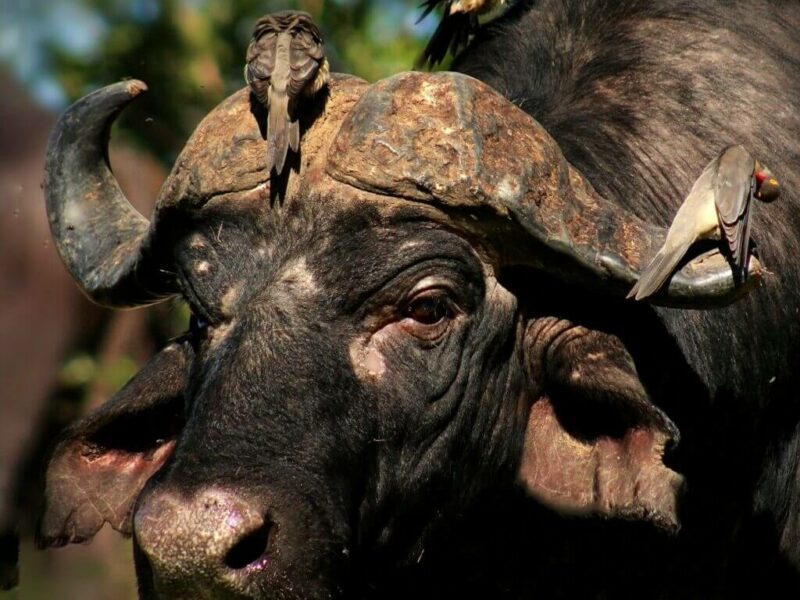
Hunting Red Lechwe
These Africa plains game feature hind legs longer than their front legs, enabling them to run and move in marshy ground and mud; a bonus as these antelope use water as a method to escape from predators. Adding difficulty to this hunt is the red lechwe’s preference for traveling in herds that can number thousands. At times hunters are told to “pick a set of horns and follow them.” Helping your case, is that this antelope is not very nervous, and a careful hunter can get within shooting range before they are spooked.
Hunting Kudu
Nicknamed “grey ghosts,” the Kudu, a shy antelope, prefers landscapes where their coat allows them to “disappear” into the environment. Hunting from a blind overlooking a salt lick or watering hole is favorable, but the best approach is through “spot and stalk” on foot.
Hunting Eland
Calling the Kalahari region home, this is another Africa plains game trophy that will make you work to get a chance at your shot. Walking 7–10 miles on your game hunting safari is not unheard of, and you can marvel at the Bushmen’s ability to track an animal by instinct alone. Other methods include still hunting, which could involve a hunter hiding in the bush near a water hole for hours, requiring immense patience and discipline.
The best time to hunt these antelope is early morning as eland graze at night, and during the heat of the day, they seek both shade and cover.
Rules and Regulations Regarding Hunting in Botswana
These are some of the regulations you will encounter when planning your game hunting trip, as always they can be changed or updated at any time, and your African outfitter will do their utmost to ensure their offers and plans are up to date.
Official hunting season is from April to September.
- All non–resident hunters must hunt under the supervision of a licensed professional hunter and outfitter.
- Night hunting and the hunting of female animals are allowed on private land only.
- Animals may not be hunted from vehicles.
- You may only hunt animals for which you have a permit, and these animals may be quota regulated.
- Minimum lengths of time for hunting are usually set by the outfitter.
- Each individual requires a hunting permit.
- Minimum calibre for dangerous game is .375 and for game is .222
- Maximum calibre for any animal is .577 Nitro Express
Documents and Permits
When planning hunting safaris in Botswana or anywhere else, it’s advised to check up on regulations surrounding the required documents for entry. These requirements may differ depending on what class of traveler you fall under, and regulations concerning minors are updated often.
- Every entrant to Botswana must have a valid passport that will remain valid for six months after return, as well as three or more unused pages.
- Visitors from the US are required to have a visa. Check the Botswana Embassy website to for updated information: http://www.botswanaembassy.org/page/guidelines-for-completing-a-visa-application. This site will also take you through the visa application process.
- All supporting documents and copies must be notarized and in English.
- One of the documents required for minors is an unabridged birth certificate.
- Visa processing can take 21 days.
Tourist-specific Visa Documents
Copy of tour plan or schedule.
- Confirmation of your booking at your lodge or hotel.
- Recent bank statement (first page only).
- Return visa or residence permit from home country.
- Cost = $30 single entry for one month or $50 multiple entry valid for three months.
- For more information on other requirements, especially for traveling with minors, visit the Botswana Embassy website. Alternatively, discuss with your outfitter when planning your game hunting safari.
Firearms and Ammunition
Always check with the outfitter for regulations regarding weapons, as some reserves or concessions may vary.
Three firearms may be brought into Botswana per hunter:
- s 2 rifles and 1 shotgun
- s 2 shotguns and 1 rifle
- 100 rounds of ammunition per gun, and it must match the gun’s caliber.
· No semi-automatic or automatic weapons or handguns are allowed.
Things to do in Botswana
This African country is a land for those who love the outdoors and being in nature (even if watching it from your resort!). There’s something for every kind of nature lover or anyone wanting to explore Botswana’s culture and wildlife, game hunting involved or not.
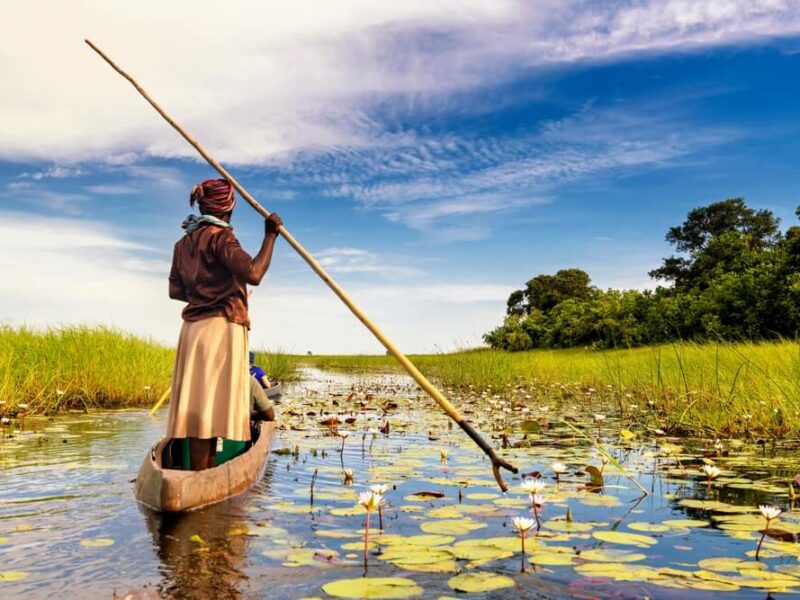
Safari Drives and Aquatic Safaris
Meeting the Bushmen
These indigenous groups of San hunter-gatherers form the First Nations of southern Africa. One can join a guided walking adventure to fully immerse oneself in the culture and lifestyle of these people, who spent over 20,000 years mastering the art of survival.
Birdwatching
Botswana is a birdwatcher’s paradise, especially from November – March. Over 550 bird species, both endemic and migrant, call this area home. From Pied kingfishers, black egrets, and African fish eagles to giant eagle owls, hornbills, and the bee–eaters; whether you’re a seasoned bird watcher or a total newbie, you’ll be on cloud nine.
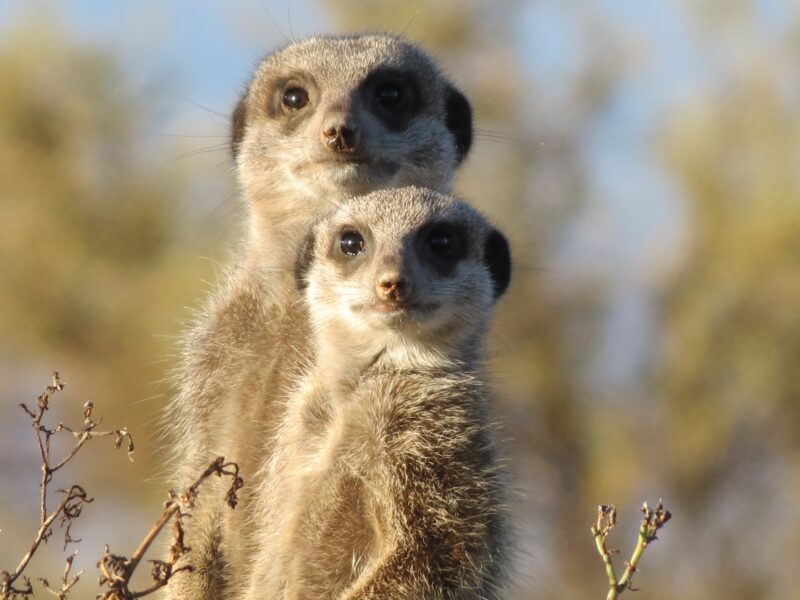
Meeting the Meerkats
Horse Riding Safaris
Hot Air Ballooning in the Okavango
Measuring up to a Baobab
Botswana at a Glance
- The official language is Botswana in English, while the national language is Setswana.
- The currency is the Pula (Pula means “rain” in Setswana).
- The climate is semi–arid and in the summer months (the rainy season) you will experience sub–tropical weather, while winter brings much lower temperatures and regular frost.
- Botswana is considered one of the safest countries in Africa, for both residents and tourists.
Things to Remember
- Given the climate of Botswana, especially in the northern areas, you are advised to take precautions against malaria. This includes taking medication before your trip, bringing it with you, employing other methods of mosquito protection like repellents (containing DEET), wearing long sleeves and long pants, and ensuring that your feet are covered. It is advised to use a mosquito net at night.
- If you are traveling from or traveled through a country where Yellow Fever is endemic, you will need to show proof of vaccination. Vaccinations against typhoid, meningitis, and polio are also recommended.
Trophy Hunting in Botswana - The Perfect Hunting Destination
Whether you’re trophy hunting in Botswana, on the lookout for some African plains game, or simply part of the hunting support party; this part of Africa has something for you. Botswana is a haven for nature lovers and those favoring the outdoors.
With a rich history of human strength and survival, bold tales of folklore and fantasy, and some of the best game hunting Africa has to offer, Botswana will leave a permanent mark on those who step onto its soil
